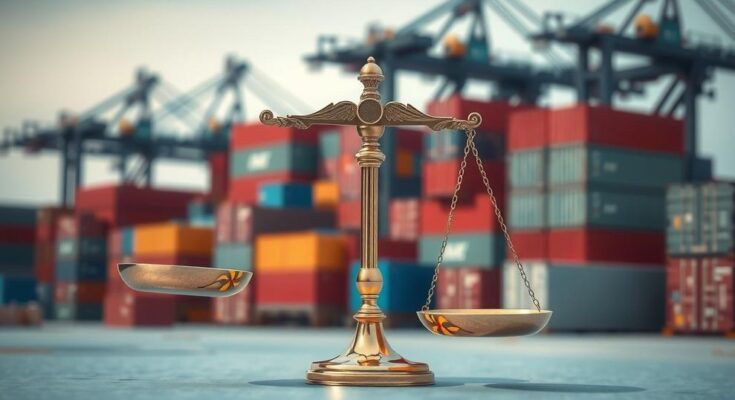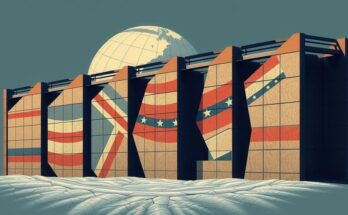The Ongoing Debate on Tariffs: Pros and Cons
Tariffs, while often touted by politicians like Donald Trump, provoke skepticism among mainstream economists who view them as an inefficient means for governments to raise revenue. Critics argue that tariffs raise consumer costs and do not significantly foster overall prosperity, leading to a divide in perspectives on their effectiveness.
Pros of Tariffs: Revenue Generation
As taxes on imports, tariffs are designed to increase government revenue. Trump’s assertion that tariffs will pay off the national debt reflects historical precedents where tariffs provided over half of the U.S. government’s income in the 19th century. However, today’s revenue from tariffs remains modest in the context of a vast global economy, estimated by the Tax Foundation to generate approximately $100 billion annually.
Cons of Tariffs: Economic Burden on Consumers
One of the immediate downsides of tariffs is the surge in consumer prices. Research from the National Bureau of Economic Research during Trump’s initial term shows that most added costs burden U.S. consumers. Tariff impacts could diminish the incomes of poorer Americans significantly and may trigger inflation, leading to elevated interest rates and hindered economic growth.
Pros of Tariffs: Protection of Domestic Industries
Supporters argue that tariffs are crucial for safeguarding local industries by making imported goods more costly, thereby encouraging consumers to buy domestic products. This strategy aims to revive industries weakened by globalization. Advocates assert that Trump’s tariffs would shift the focus back to American manufacturing, reassuring workers fearful of losing jobs to foreign countries.
Cons of Tariffs: Lobbying and Corruption Risks
However, tariffs can foster corruption and promote lobbying, complicating the landscape of protectionism. Trump’s tariffs initiated an intricate web of political negotiations where firms sought exemptions through lobbying, turning tariff exemptions into political favors. In such scenarios, economic decisions often pivot on political influence rather than objective needs.
Pros of Tariffs: National Interest and Foreign Policy Leverage
Politically, tariffs serve as instruments of foreign policy, exerting economic pressure on trading partners. When imposed on other countries’ exports, they can be powerful tools for negotiation, as seen with recent tariffs on Mexican and Canadian goods aimed at curbing illegal immigration and drug trafficking.
Cons of Tariffs: Retaliatory Measures
Nonetheless, tariffs can prompt retaliatory responses from affected nations, leading to economic repercussions. Research from prestigious institutions indicates that retaliatory tariffs had adverse effects on U.S. employment, particularly in agriculture. Although politically effective, these measures can complicate international relations and economic stability.
Tariffs are a contentious topic, drawing contrasting views. They can generate government revenue and protect local industries, yet they usually raise consumer prices and may foster corruption. Tariffs also influence foreign policy but can trigger retaliatory measures that harm domestic employment, creating a complex landscape of economic debate.
In summary, tariffs present a complex array of advantages and disadvantages. While they can generate revenue and protect domestic interests, they also carry economic burdens for consumers and may lead to political corruption and retaliatory actions from other nations. The debate remains vibrant as mixed perspectives on the role of tariffs challenge their efficacy in fostering true economic prosperity.
Original Source: theweek.com



